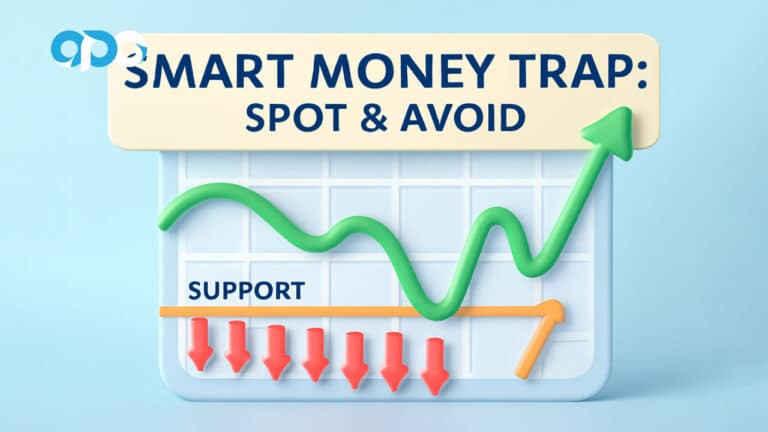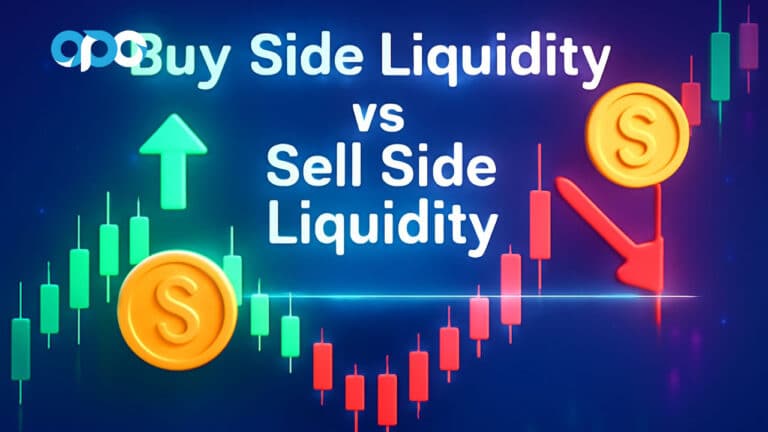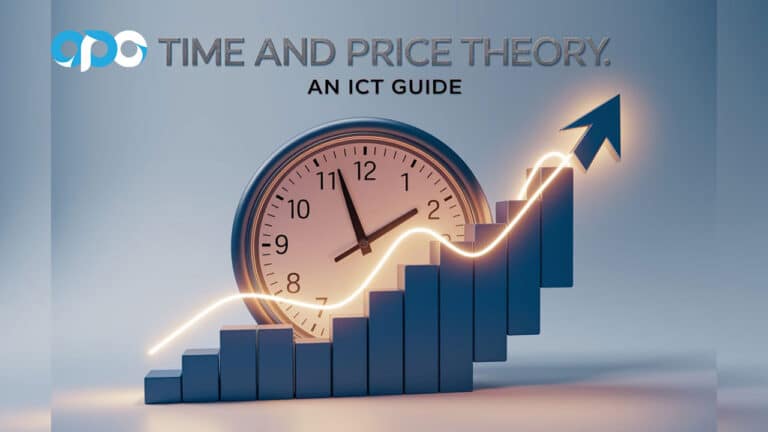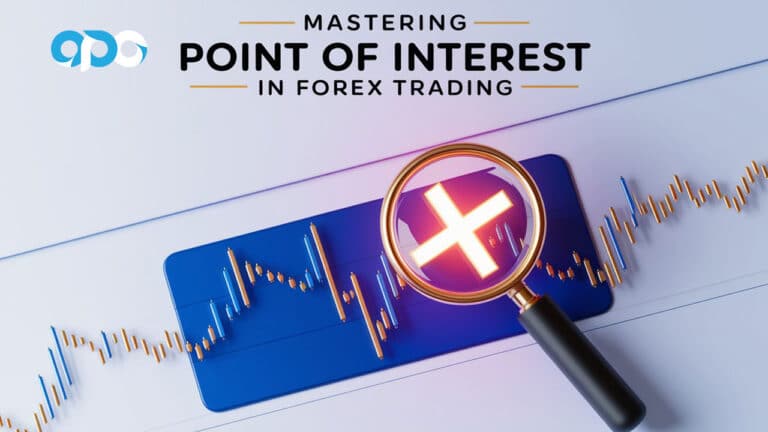The foreign exchange (Forex or FX) market is the largest and most liquid financial market in the world, with a daily trading volume exceeding $6 trillion. Unlike other financial markets, the forex market has no centralized exchange and operates 24 hours a day through a global network of banks, brokers, and financial institutions. The primary function of the forex market is to facilitate international trade and investment by enabling currency conversion. Additionally, it offers opportunities for speculation and hedging. For those participating in this market, choosing a reliable broker for forex trading is essential.

History and Evolution of the Forex Market
The history of the forex market is as old as the history of money itself. However, the modern forex market we know today began to take shape after the collapse of the Bretton Woods system in the early 1970s. The Bretton Woods Agreement, established in 1944, fixed exchange rates for major currencies to the US dollar, which was convertible to gold. In 1971, President Nixon announced the suspension of the dollar’s convertibility into gold, leading to the system’s collapse and the emergence of floating exchange rates. This transition allowed currencies to fluctuate based on supply and demand, paving the way for the modern forex market.

Nature and Management of the Forex Market
The forex market operates through a global network of banks, brokers, and financial institutions. It is decentralized, meaning there is no single exchange where transactions occur. Instead, trading happens over-the-counter (OTC) directly between parties. The market is open 24 hours a day, five days a week, allowing for continuous trading as different financial centers around the world open and close. The key participants in the forex market include central banks, commercial banks, non-banking financial institutions, hedge funds, personal investors, retail traders, institutional investors, governments and government agencies, brokers, and market makers.
Central Banks
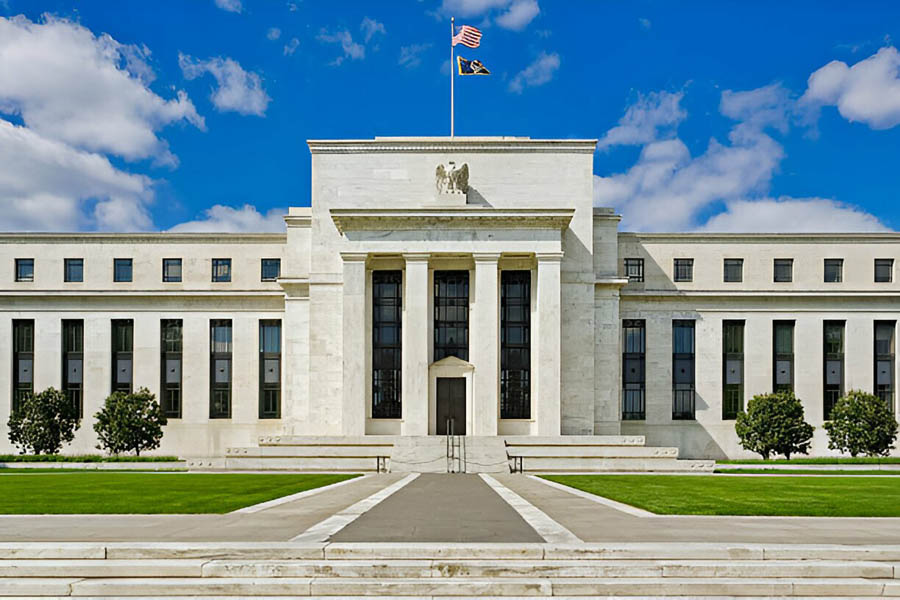
Figure 1Federal Reserve
Role of Central Banks
Central banks are pivotal in the forex market as they manage a country’s currency, money supply, and interest rates. Their primary goal is to maintain financial stability and control inflation. Major central banks like the Federal Reserve (USA), the European Central Bank (ECB), and the Bank of Japan (BoJ) have a significant influence on the forex market.
Monetary Policy
Central banks implement monetary policy through tools such as interest rate adjustments, open market operations, and quantitative easing. For instance, when a central bank raises interest rates, it typically strengthens its currency as higher rates attract foreign capital seeking better returns.
Example:
In 2015, the European Central Bank (ECB) implemented a quantitative easing program to combat low inflation and stimulate economic growth. This involved purchasing large amounts of government bonds, which increased the money supply and devalued the euro. As a result, the EUR/USD exchange rate fell, impacting international trade and investment.
Forex Reserves
Central banks also maintain foreign exchange reserves to stabilize their currency and manage exchange rate volatility. These reserves are used to intervene in the forex market, either to support or weaken their currency as needed.
Case Study:
In 1998, during the Asian Financial Crisis, the Hong Kong Monetary Authority (HKMA) intervened in the forex market by using its substantial reserves to defend the Hong Kong dollar peg to the US dollar. The intervention involved buying Hong Kong dollars and selling US dollars, stabilizing the currency and restoring market confidence.
Impact of Geopolitical Events
Geopolitical events, such as elections, wars, and trade disputes, significantly impact central banks’ policies and the forex market. Central banks may adjust interest rates or intervene in the market to stabilize their currency during geopolitical turmoil.
Example:
The 2016 Brexit referendum led to significant volatility in the forex market as the British pound plummeted. The Bank of England responded by cutting interest rates and implementing a stimulus package to support the economy, demonstrating the interplay between geopolitical events and central bank actions.
Read More: Market Makers in Forex Market
Commercial Banks
Role in Forex Market
Commercial banks are the backbone of the forex market, facilitating most of the transactions. They provide liquidity to the market and offer a wide range of services, including currency exchange, international wire transfers, and hedging solutions for their clients.
Interbank Market
The interbank market is a critical component of the forex market where commercial banks trade currencies with each other. These transactions are typically large and occur at interbank rates, which serve as a benchmark for retail rates.
Historical Example:
During the 2008 financial crisis, the interbank market experienced significant strain as banks became wary of lending to each other. This led to a liquidity crunch, causing central banks to step in and provide emergency funding to stabilize the market.
Corporate Clients
Commercial banks serve corporate clients engaged in international trade, helping them manage currency risk through various financial instruments such as forward contracts, options, and swaps.
Case Study:
A multinational corporation, such as Apple Inc., uses forward contracts to hedge against currency fluctuations when purchasing components from overseas suppliers. By locking in exchange rates, Apple can protect itself from adverse currency movements and stabilize its costs.
Impact of Geopolitical Risks
Commercial banks must navigate geopolitical risks in their forex operations, especially when dealing with emerging markets. Political instability and regulatory changes can affect currency values and market conditions, requiring banks to adjust their strategies.
Case Study:
During the 2014 Ukrainian crisis, commercial banks operating in Eastern Europe faced significant challenges as the Ukrainian hryvnia depreciated sharply. Banks had to manage their exposure to the region carefully and adjust their currency hedging strategies to mitigate risks.
Non-Banking Financial Institutions
Investment Funds
Non-banking financial institutions, such as investment funds, play a significant role in the forex market. These funds include mutual funds, pension funds, and insurance companies that invest in foreign currencies to diversify their portfolios and hedge against currency risk.
Role of Insurance Companies
Insurance companies invest in foreign assets to match their liabilities in different currencies. By doing so, they protect themselves against currency fluctuations that could impact their financial stability.
Example:
A pension fund with liabilities in euros may invest in US dollar-denominated assets to achieve higher returns. To hedge against currency risk, the fund might use currency swaps or options, ensuring that fluctuations in the EUR/USD exchange rate do not adversely affect its financial position.
Case Study: Non-Banking Financial Institutions in Crisis
During the 2008 financial crisis, many non-banking financial institutions faced significant challenges due to the rapid depreciation of various currencies. Investment funds that were heavily invested in foreign assets saw their portfolio values drop, necessitating strategic adjustments to minimize losses.
Impact of Technological Advancements
Technological advancements have enabled non-banking financial institutions to utilize sophisticated risk management tools and automated trading systems. These technologies have enhanced their ability to respond to market changes swiftly and manage large portfolios efficiently.
Example:
Insurance companies use advanced modeling software to predict and hedge against potential currency risks. By integrating technology into their investment strategies, they can better manage their exposures and ensure financial stability.
Read More: Understanding Copy Trading on Opofinance
Hedge Funds
Speculative Nature
Hedge funds are known for their speculative activities in the forex market. They use sophisticated strategies and leverage to profit from currency movements. Hedge funds often take large positions in the market, which can significantly impact currency prices.

Strategies Employed
Hedge funds employ various strategies, including trend following, arbitrage, and macroeconomic analysis, to capitalize on market inefficiencies and predict currency movements. Their high-risk, high-reward approach makes them influential players in the forex market.
Historical Example:
In 1992, George Soros’s hedge fund famously shorted the British pound, betting that the UK would be forced to devalue its currency. This event, known as Black Wednesday, resulted in significant profits for Soros’s fund and highlighted the power of hedge funds in the forex market.
Geopolitical Speculation
Hedge funds often capitalize on geopolitical events by speculating on currency movements. Their ability to quickly shift positions and employ leverage allows them to profit from market volatility caused by geopolitical developments.
Historical Example:
In 1997, the Asian Financial Crisis provided hedge funds with opportunities to short the Thai baht and other regional currencies. Hedge funds profited from the crisis, but their actions also exacerbated the financial instability in affected countries.
Impact of Technological Advancements
Technological advancements have significantly impacted hedge fund operations. Automated trading systems and high-frequency trading (HFT) have enabled hedge funds to execute large volumes of trades at unprecedented speeds, enhancing their ability to capitalize on market opportunities.
Example:
High-frequency trading (HFT) firms use sophisticated algorithms to execute large volumes of trades in milliseconds. Firms like Virtu Financial have become major players in the forex market, leveraging technology to gain a competitive edge.
Personal Investors
Increasing Participation
Personal investors, or individual traders, have gained access to the forex market through online trading platforms and brokerage services. This democratization of forex trading has led to increased participation from retail traders.
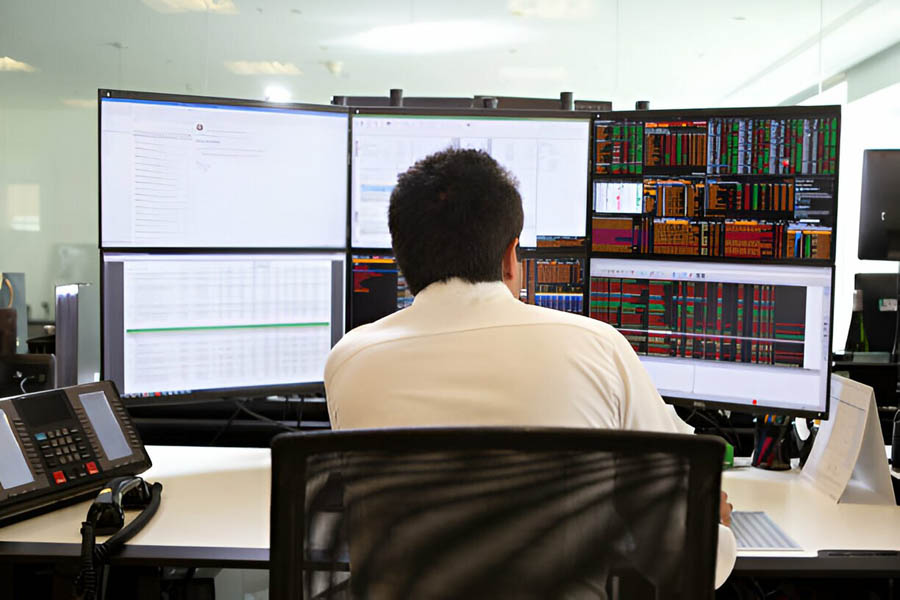
Trading Strategies
Personal investors use a variety of trading strategies, such as day trading, swing trading, and position trading, to profit from short-term and long-term currency movements. Many also use technical analysis and charting tools to make informed trading decisions.
Example:
An individual trader might use the Relative Strength Index (RSI) to identify overbought or oversold conditions in a currency pair, allowing them to enter or exit trades based on potential price reversals.
Impact of Educational Resources
The availability of educational resources, such as webinars, online courses, and trading forums, has empowered personal investors to develop their trading skills and knowledge. These resources have contributed to the growth of retail trading in the forex market.
Case Study:
Online trading academies, such as the Online Trading Academy (OTA), offer comprehensive courses that cover various aspects of forex trading. These courses help personal investors understand market dynamics, develop trading strategies, and manage risk effectively.
Impact of Geopolitical Events
Personal investors are also affected by geopolitical events, as these can cause significant volatility in the forex market. Staying informed about global events and their potential impact on currency prices is crucial for individual traders.
Example:
During the 2020 US presidential election, personal investors closely monitored the election results and market reactions. The uncertainty surrounding the election outcome led to increased volatility in the forex market, presenting both risks and opportunities for individual traders.
Retail Traders
Role in Forex Market
Retail traders are individual investors who trade currencies through online brokers. They contribute to market liquidity and can influence short-term price movements, particularly in less liquid currency pairs.
Growth of Online Trading Platforms
The development of online trading platforms has democratized access to the forex market, allowing retail traders to participate alongside institutional investors. These platforms offer real-time market data, advanced charting tools, and educational resources.
Case Study:
MetaTrader 4 (MT4) is a widely used online trading platform that has empowered retail traders with access to the forex market. MT4’s user-friendly interface, combined with powerful analysis tools, has made it a popular choice among individual traders.
Mobile Trading Apps
The proliferation of mobile trading apps has further increased accessibility to the forex market. Traders can now execute trades, monitor market conditions, and manage their accounts on the go.
Example:
Apps like eToro and TradingView have gained popularity for their intuitive interfaces and social trading features, allowing traders to follow and replicate the strategies of successful investors. This convenience has contributed to the growth of retail trading.
Impact of Regulatory Changes
Regulatory changes aimed at protecting retail investors have shaped the retail trading landscape. Measures such as leverage limits and negative balance protection ensure that retail traders can participate in the market safely and responsibly.
Example:
The introduction of the European Securities and Markets Authority (ESMA) regulations in 2018 imposed leverage limits on retail forex trading and required brokers to provide negative balance protection. These measures aimed to protect retail traders from significant losses and promote fair trading practices.
Institutional Investors
Role and Influence
Institutional investors, such as mutual funds, pension funds, and insurance companies, are significant players in the forex market. Their large trading volumes and long-term investment strategies can influence currency prices and market trends.
Investment Strategies
Institutional investors use forex trading to diversify their portfolios and hedge against currency risk. They often employ sophisticated risk management techniques and leverage their financial expertise to achieve their investment goals.
Example:
A pension fund with liabilities in multiple currencies might use currency swaps to manage its exposure to exchange rate fluctuations. By entering into a swap agreement, the fund can exchange cash flows in one currency for cash flows in another, reducing its currency risk.
Impact of Geopolitical Events
Geopolitical events can have a significant impact on institutional investors’ forex strategies. Political instability, trade disputes, and economic sanctions can affect currency values and market conditions, requiring institutional investors to adjust their positions.
Case Study:
During the US-China trade war in 2018, institutional investors closely monitored developments and adjusted their forex strategies accordingly. The imposition of tariffs and retaliatory measures led to volatility in the forex market, prompting investors to reallocate their assets and hedge against potential risks.
Impact of Technological Advancements
Technological advancements have enabled institutional investors to utilize advanced analytics and trading algorithms. These tools enhance their ability to analyze market data, execute trades efficiently, and manage large portfolios.
Example:
Institutional investors use algorithmic trading systems to execute large orders without causing significant market impact. These systems can break down large orders into smaller, strategically timed trades, optimizing execution and minimizing costs.
Governments and Government Agencies
Role in Forex Market
Governments and government agencies participate in the forex market to manage their foreign exchange reserves, stabilize their currency, and implement monetary policy. Their actions can have significant implications for currency values and market dynamics.
Currency Intervention
Governments may intervene in the forex market to influence their currency’s value. This can involve buying or selling their currency in the open market or using other financial instruments to achieve their desired exchange rate.
Historical Example:
In 2011, the Swiss National Bank (SNB) intervened in the forex market to prevent the Swiss franc from appreciating too rapidly. The SNB set a minimum exchange rate target for the EUR/CHF pair and committed to buying unlimited amounts of foreign currency to maintain this target. This intervention stabilized the Swiss franc and protected the Swiss economy from deflationary pressures.
Impact of Geopolitical Events
Geopolitical events often necessitate government intervention in the forex market. Political instability, economic sanctions, and international conflicts can lead to significant currency fluctuations, prompting governments to take action.
Case Study:
During the Russian financial crisis of 1998, the Russian government intervened in the forex market to stabilize the ruble. The government implemented capital controls and used its foreign exchange reserves to support the currency, eventually restoring stability to the market.
Impact of Technological Advancements
Technological advancements have enhanced governments’ ability to monitor and manage the forex market. Advanced data analytics and real-time monitoring systems enable governments to make informed decisions and respond swiftly to market developments.
Example:
Governments use sophisticated financial software to analyze market trends and predict potential risks. These tools allow for better-informed policy decisions and more effective market interventions.
Brokers and Market Makers
Role in Forex Market
Brokers and market makers facilitate forex trading by providing liquidity and executing trades on behalf of clients. They play a crucial role in ensuring smooth market operations and maintaining efficient price discovery.
Types of Brokers
There are two main types of forex brokers: dealing desk (market makers) and no dealing desk (NDD) brokers. Market makers create a market for their clients by taking the opposite side of trades, while NDD brokers provide direct access to the interbank market.
Example:
A market maker broker, such as IG Group, offers a fixed spread and executes trades at prices set internally. In contrast, an NDD broker like Interactive Brokers connects traders directly to liquidity providers, offering variable spreads based on market conditions.
Impact of Regulatory Changes
Regulatory changes have significantly impacted brokers and market makers. Increased transparency requirements, higher capital standards, and stricter compliance measures aim to protect investors and ensure fair trading practices.
Case Study:
The implementation of the MiFID II (Markets in Financial Instruments Directive II) in 2018 introduced significant changes for forex brokers in Europe. MiFID II aimed to enhance transparency and investor protection, requiring brokers to disclose more information about their operations and ensure best execution for client orders.
Impact of Technological Advancements
Technological advancements have transformed the role of brokers and market makers. The development of electronic trading platforms, advanced order matching algorithms, and real-time data feeds has enhanced their ability to provide efficient and reliable services.
Example:
Electronic Communication Networks (ECNs) connect traders with liquidity providers, enabling fast and transparent trade execution. ECN brokers like FXCM offer tight spreads and deep liquidity, making them popular among retail and institutional traders.
Impact of Geopolitical Events on Forex Market Players
Central Banks and Geopolitical Events
Geopolitical events, such as elections, wars, and trade disputes, significantly impact central banks’ policies and the forex market. Central banks may adjust interest rates or intervene in the market to stabilize their currency during geopolitical turmoil.
Example:
The 2016 Brexit referendum led to significant volatility in the forex market as the British pound plummeted. The Bank of England responded by cutting interest rates and implementing a stimulus package to support the economy, demonstrating the interplay between geopolitical events and central bank actions.
Commercial Banks and Geopolitical Risks
Commercial banks must navigate geopolitical risks in their forex operations, especially when dealing with emerging markets. Political instability and regulatory changes can affect currency values and market conditions, requiring banks to adjust their strategies.
Case Study:
During the 2014 Ukrainian crisis, commercial banks operating in Eastern Europe faced significant challenges as the Ukrainian hryvnia depreciated sharply. Banks had to manage their exposure to the region carefully and adjust their currency hedging strategies to mitigate risks.
Hedge Funds and Geopolitical Speculation
Hedge funds often capitalize on geopolitical events by speculating on currency movements. Their ability to quickly shift positions and employ leverage allows them to profit from market volatility caused by geopolitical developments.
Historical Example:
In 1997, the Asian Financial Crisis provided hedge funds with opportunities to short the Thai baht and other regional currencies. Hedge funds profited from the crisis, but their actions also exacerbated the financial instability in affected countries.
Technological Advancements in the Forex Market
Automated Trading Systems
Technological advancements have revolutionized the forex market, with automated trading systems and algorithms playing a significant role. These systems can execute trades at high speeds and with greater accuracy, enhancing market efficiency.
Example:
High-frequency trading (HFT) firms use sophisticated algorithms to execute large volumes of trades in milliseconds. Firms like Virtu Financial have become major players in the forex market, leveraging technology to gain a competitive edge.
Online Trading Platforms
The development of online trading platforms has democratized access to the forex market, allowing retail traders to participate alongside institutional investors. These platforms offer real-time market data, advanced charting tools, and educational resources.
Case Study:
MetaTrader 4 (MT4) is a widely used online trading platform that has empowered retail traders with access to the forex market. MT4’s user-friendly interface, combined with powerful analysis tools, has made it a popular choice among individual traders.
Mobile Trading Apps
The proliferation of mobile trading apps has further increased accessibility to the forex market. Traders can now execute trades, monitor market conditions, and manage their accounts on the go.
Example:
Apps like eToro and TradingView have gained popularity for their intuitive interfaces and social trading features, allowing traders to follow and replicate the strategies of successful investors. This convenience has contributed to the growth of retail trading.
Impact on Risk Management
Technological advancements have enhanced risk management practices in the forex market. Advanced analytics, real-time monitoring, and predictive modeling tools allow market participants to identify and mitigate risks more effectively.
Example:
Institutional investors use advanced risk management software to analyze their exposure to currency fluctuations and develop strategies to hedge against potential losses. These tools provide valuable insights and enable more informed decision-making.
Regulatory Changes in the Forex Market
Importance of Regulation
Regulation plays a crucial role in maintaining the integrity and stability of the forex market. It ensures transparency, protects investors, and prevents fraudulent activities. Regulatory bodies, such as the Commodity Futures Trading Commission (CFTC) and the Financial Conduct Authority (FCA), oversee the forex market and enforce compliance.
Impact of MiFID II
The implementation of the MiFID II (Markets in Financial Instruments Directive II) in 2018 introduced significant changes for forex brokers in Europe. MiFID II aimed to enhance transparency and investor protection, requiring brokers to disclose more information about their operations and ensure best execution for client orders.
Example:
MiFID II regulations mandated that brokers provide detailed reports on trade execution quality and disclose any conflicts of interest. These measures aimed to improve transparency and protect retail traders from unfair practices.
Leverage Limits
Regulatory changes aimed at protecting retail investors have shaped the retail trading landscape. Measures such as leverage limits and negative balance protection ensure that retail traders can participate in the market safely and responsibly.
Example:
The introduction of the European Securities and Markets Authority (ESMA) regulations in 2018 imposed leverage limits on retail forex trading and required brokers to provide negative balance protection. These measures aimed to protect retail traders from significant losses and promote fair trading practices.
Anti-Money Laundering (AML) and Know Your Customer (KYC) Regulations
Regulatory bodies have implemented stringent AML and KYC regulations to prevent money laundering and financial crimes in the forex market. These regulations require brokers and financial institutions to verify their clients’ identities and monitor their transactions for suspicious activities.
Case Study:
In 2020, several forex brokers faced penalties for failing to comply with AML and KYC regulations. These penalties underscored the importance of robust compliance measures and the need for brokers to maintain high standards of due diligence.
What is the significance of the forex market being decentralized?
The decentralized nature of the forex market means that it operates without a central exchange, allowing for continuous trading 24 hours a day, five days a week. This structure provides liquidity, flexibility, and accessibility to market participants worldwide. Decentralization also means that the market is less susceptible to manipulation and more reflective of global economic conditions.
How do geopolitical events affect retail traders in the forex market?
Geopolitical events can cause significant volatility in the forex market, impacting retail traders. Events such as elections, wars, and trade disputes can lead to sudden and unpredictable currency movements. Retail traders must stay informed about global developments and be prepared to adjust their trading strategies to manage risk and capitalize on opportunities.
What role do brokers play in ensuring fair trading practices in the forex market?
Brokers play a crucial role in ensuring fair trading practices by providing transparent pricing, executing trades efficiently, and adhering to regulatory standards. They offer platforms and tools that enable traders to access market data, analyze trends, and execute trades. Reputable brokers also implement measures to protect their clients, such as negative balance protection and segregation of client funds.
How have technological advancements impacted risk management in the forex market?
Technological advancements have significantly improved risk management in the forex market. Advanced analytics, real-time monitoring systems, and predictive modeling tools allow market participants to identify and mitigate risks more effectively. These technologies provide valuable insights into market conditions, enhance decision-making, and enable more efficient execution of risk management strategies.


